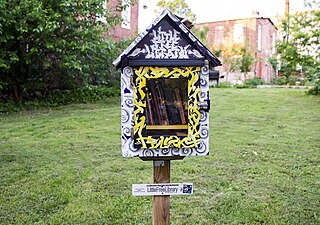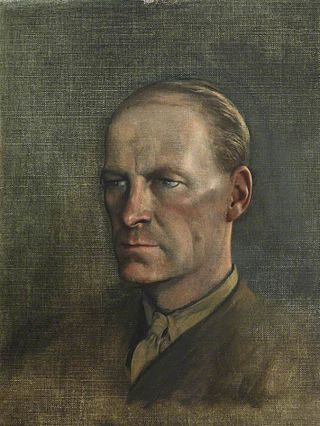
Edmund Gustav Albrecht Husserl was an Austrian-German philosopher and mathematician who established the school of phenomenology.
Metaphilosophy, sometimes called the philosophy of philosophy, is "the investigation of the nature of philosophy". Its subject matter includes the aims of philosophy, the boundaries of philosophy, and its methods. Thus, while philosophy characteristically inquires into the nature of being, the reality of objects, the possibility of knowledge, the nature of truth, and so on, metaphilosophy is the self-reflective inquiry into the nature, aims, and methods of the activity that makes these kinds of inquiries, by asking what is philosophy itself, what sorts of questions it should ask, how it might pose and answer them, and what it can achieve in doing so. It is considered by some to be a subject prior and preparatory to philosophy, while others see it as inherently a part of philosophy, or automatically a part of philosophy while others adopt some combination of these views.

The Tractatus Logico-Philosophicus is the only book-length philosophical work by the Austrian philosopher Ludwig Wittgenstein that was published during his lifetime. The project had a broad goal: to identify the relationship between language and reality, and to define the limits of science. Wittgenstein wrote the notes for the Tractatus while he was a soldier during World War I and completed it during a military leave in the summer of 1918. It was originally published in German in 1921 as Logisch-Philosophische Abhandlung. In 1922 it was published together with an English translation and a Latin title, which was suggested by G. E. Moore as homage to Baruch Spinoza's Tractatus Theologico-Politicus (1670).

Discourse is a generalization of the notion of a conversation to any form of communication. Discourse is a major topic in social theory, with work spanning fields such as sociology, anthropology, continental philosophy, and discourse analysis. Following pioneering work by Michel Foucault, these fields view discourse as a system of thought, knowledge, or communication that constructs our experience of the world. Since control of discourse amounts to control of how the world is perceived, social theory often studies discourse as a window into power. Within theoretical linguistics, discourse is understood more narrowly as linguistic information exchange and was one of the major motivations for the framework of dynamic semantics, in which expressions' denotations are equated with their ability to update a discourse context.

The sociology of knowledge is the study of the relationship between human thought, the social context within which it arises, and the effects that prevailing ideas have on societies. It is not a specialized area of sociology. Instead, it deals with broad fundamental questions about the extent and limits of social influences on individuals' lives and the social-cultural basis of our knowledge about the world. The sociology of knowledge has a subclass and a complement. Its subclass is sociology of scientific knowledge. Its complement is the sociology of ignorance.

Phenomenology is the philosophical study of objectivity and reality as subjectively lived and experienced. It seeks to investigate the universal features of consciousness while avoiding assumptions about the external world, aiming to describe phenomena as they appear to the subject, and to explore the meaning and significance of the lived experiences.

Alfred Schutz was an Austrian philosopher and social phenomenologist whose work bridged sociological and phenomenological traditions. Schutz is gradually being recognized as one of the 20th century's leading philosophers of social science. He related Edmund Husserl's work to the social sciences, using it to develop the philosophical foundations of Max Weber's sociology, in his major work Phenomenology of the Social World. However, much of his influence arose from the publication of his Collected Papers in the 1960s.

Social reality is distinct from biological reality or individual cognitive reality, representing as it does a phenomenological level created through social interaction and thereby transcending individual motives and actions. As a product of human dialogue, social reality may be considered as consisting of the accepted social tenets of a community, involving thereby relatively stable laws and social representations. Radical constructivism would cautiously describe social reality as the product of uniformities among observers.

Social constructionism is a term used in sociology, social ontology, and communication theory. The term can serve somewhat different functions in each field; however, the foundation of this theoretical framework suggests various facets of social reality—such as concepts, beliefs, norms, and values—are formed through continuous interactions and negotiations among society's members, rather than empirical observation of physical reality. The theory of social constructionism posits that much of what individuals perceive as 'reality' is actually the outcome of a dynamic process of construction influenced by social conventions and structures.

Ethnomethodology is the study of how social order is produced in and through processes of social interaction. It generally seeks to provide an alternative to mainstream sociological approaches. In its most radical form, it poses a challenge to the social sciences as a whole. Its early investigations led to the founding of conversation analysis, which has found its own place as an accepted discipline within the academy. According to Psathas, it is possible to distinguish five major approaches within the ethnomethodological family of disciplines.

Gilbert Ryle was a British philosopher, principally known for his critique of Cartesian dualism, for which he coined the phrase "ghost in the machine." He was a representative of the generation of British ordinary language philosophers who shared Ludwig Wittgenstein's approach to philosophical problems.
Verstehen, in the context of German philosophy and social sciences in general, has been used since the late 19th century – in English as in German – with the particular sense of the "interpretive or participatory" examination of social phenomena. The term is closely associated with the work of the German sociologist Max Weber, whose antipositivism established an alternative to prior sociological positivism and economic determinism, rooted in the analysis of social action. In anthropology, Verstehen has come to mean a systematic interpretive process in which an outside observer of a culture attempts to relate to it and understand others.

Lifeworld may be conceived as a universe of what is self-evident or given, a world that subjects may experience together. The concept was popularized by Edmund Husserl, who emphasized its role as the ground of all knowledge in lived experience. It has its origin in biology and cultural Protestantism.

A sociological theory is a supposition that intends to consider, analyze, and/or explain objects of social reality from a sociological perspective, drawing connections between individual concepts in order to organize and substantiate sociological knowledge. Hence, such knowledge is composed of complex theoretical frameworks and methodology.

John Niemeyer Findlay, usually cited as J. N. Findlay, was a South African philosopher.

Phenomenology within sociology, or phenomenological sociology, examines the concept of social reality as a product of intersubjectivity. Phenomenology analyses social reality in order to explain the formation and nature of social institutions. The application of phenomenological ideas in sociology differs from other social science applications of social science applications.

This bibliography of sociology is a list of works, organized by subdiscipline, on the subject of sociology. Some of the works are selected from general anthologies of sociology, while other works are selected because they are notable enough to be mentioned in a general history of sociology or one of its subdisciplines.
Social anthropology is the study of patterns of behaviour in human societies and cultures. It is the dominant constituent of anthropology throughout the United Kingdom and much of Europe, where it is distinguished from cultural anthropology. In the United States, social anthropology is commonly subsumed within cultural anthropology or sociocultural anthropology.
Buddhist thought and Western philosophy include several parallels.








